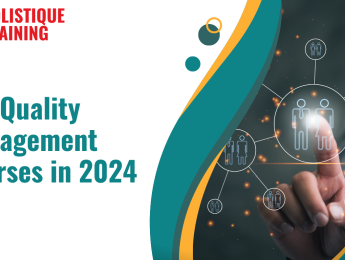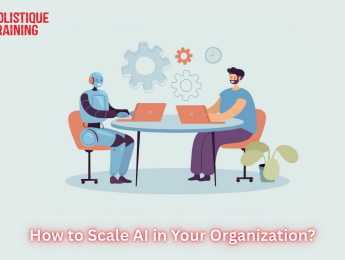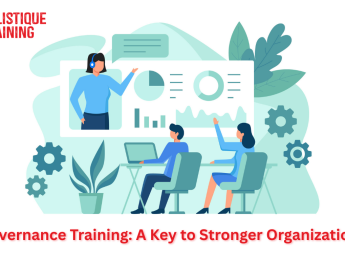- Table of Contents
- Introduction
- Understanding Organisational Skills
- Why Are Organisational Skills Important in the Workplace?
- Increased Productivity
- Better Time Management
- Stress Reduction
- Enhanced Professionalism
- Improved Problem-Solving
- Better Team Collaboration
- Enhanced Goal Achievement
- Efficient Resource Management
- Improved Work-Life Balance
- Increased Accountability
- Types of Organisational Skills
- Internal Organisational Skills:
- External Organisational Skills:
- 15 Organisational Skills Every Leader Needs
- 1. Delegation
- 2. Strategic Planning
- 3. Decision-Making
- 4. Prioritisation
- 5. Communication
- 6. Conflict Resolution
- 7. Flexibility
- 8. Time Management
- 9. Resource Management
- 10. Goal Setting
- 11. Problem-Solving
- 12. Stress Management
- 13. Motivation
- 14. Attention to Detail
- 15. Project Management
- How to Improve Your Organisational Skills
- 1. Self-Assessment and Goal Setting:
- 2. Develop a Routine:
- 3. Prioritise Tasks:
- 4. Use Organisational Tools:
- Table: KPIs of an organised leader
- 5. Break Tasks into Smaller Steps:
- 6. Declutter Your Workspace:
- 7. Improve Time Management:
- 8. Learn to Say No:
- 9. Practice Mindfulness:
- 10. Delegate Responsibilities:
- 11. Continuously Learn and Adapt:
- 12. Set Up Systems and Processes:
- 13. Monitor and Review Progress:
- 14. Seek Feedback:
- 15. Reward Yourself:
- In Conclusion
Introduction
Understanding organisational skills is pivotal to personal and professional growth. These skills encompass the ability to effectively use time, energy, and resources to achieve goals. They are not just about keeping a tidy desk or managing schedules, but involve a complex set of behaviours and tools that facilitate productivity and efficiency. Developing and honing these skills can significantly improve one's career and personal life.
Understanding Organisational Skills
Organisational skills are a combination of processes, habits, tools, and techniques to manage tasks, time, and resources efficiently. These skills help individuals plan, prioritise, and execute tasks in a structured manner. They are essential for achieving both short-term and long-term goals and can significantly enhance one’s ability to handle various responsibilities.
There are several core components to organisational skills:
- Time Management: The ability to plan and control how much time to spend on specific activities.
- Task Management: The ability to manage a task through its life cycle.
- Resource Management: The ability to manage resources effectively, including people, money, and information.
- Planning: The ability to foresee and arrange tasks and goals systematically.
- Prioritisation: The ability to determine the order for dealing with tasks according to their importance.
Why Are Organisational Skills Important in the Workplace?
Organisational skills are vital in the workplace because they enhance productivity, improve time management, reduce stress, and foster a professional environment. These skills are integral to achieving both individual and organisational goals. Let's delve deeper into why organisational skills are so important in a professional setting.
Increased Productivity
When tasks and responsibilities are well-organised, employees can work more efficiently. Organisational skills help individuals prioritise their tasks, allocate appropriate time for each activity, and avoid unnecessary distractions. This streamlined approach ensures that more work is completed in less time, boosting overall productivity. Furthermore, organised employees are better at managing multiple tasks simultaneously without compromising on quality.
Better Time Management
Effective organisational skills lead to superior time management. Employees who can manage their time well can meet deadlines, schedule their tasks effectively, and avoid the last-minute rush. This not only ensures that projects are completed on time but also allows for better planning of future tasks. Time management tools like calendars, planners, and scheduling software play a crucial role in helping employees organise their time efficiently.
Stress Reduction
An organised workspace and a clear plan for handling tasks can significantly reduce stress. When employees know what they need to do and have a plan to do it, they feel more in control and less overwhelmed. This reduction in stress leads to a healthier work environment, lower absenteeism, and higher job satisfaction. Additionally, reduced stress levels contribute to better mental and physical health, further enhancing productivity and well-being.
Enhanced Professionalism
Being organised is a sign of professionalism. It reflects an employee's commitment to their job and their ability to handle responsibilities effectively. Organised employees are seen as reliable and competent, which can lead to greater trust from colleagues and superiors. This trust is crucial for career advancement, as it opens up opportunities for taking on more significant responsibilities and leadership roles.
Improved Problem-Solving
Organisational skills enhance problem-solving abilities. When organised, employees can quickly identify issues, analyse them, and develop effective solutions. An organised approach to problem-solving ensures that problems are addressed systematically, reducing the risk of oversight and ensuring that all aspects of a problem are considered. This leads to more effective and sustainable solutions.
Better Team Collaboration
Organisational skills are essential for effective teamwork. When team members are organised, they can coordinate their efforts more efficiently, share resources effectively, and communicate clearly. This leads to better collaboration and more successful project outcomes. Organised teams can also adapt more quickly to changes and manage project risks more effectively, ensuring that projects stay on track.
Enhanced Goal Achievement
Organisational skills are crucial for setting and achieving goals. When employees are organised, they can break down their goals into manageable tasks, set realistic deadlines, and track their progress. This structured approach makes it easier to achieve both short-term and long-term goals. Additionally, organised employees are better at aligning their goals with the organisation's objectives, contributing to the business's overall success.
Efficient Resource Management
Organisational skills enable employees to manage resources—such as time, money, and materials—more efficiently. This ensures that resources are used optimally, reducing waste and minimising costs. Efficient resource management is particularly important in project management, where the ability to allocate resources effectively can determine the success of a project. By being organised, employees can ensure that all resources are utilised to their full potential.
Improved Work-Life Balance
Organisational skills help employees maintain a better work-life balance. By managing their time effectively and staying organised, employees can ensure that they complete their work within the allocated time, leaving more time for personal activities. This balance is essential for maintaining overall well-being and job satisfaction. Employees with a good work-life balance are more likely to be motivated, engaged, and productive. In fact, recent research has shown that achieving a healthier work-life balance enhances job satisfaction, performance, and commitment to the organisation, while also boosting satisfaction in personal life and family dynamics. Furthermore, maintaining a balanced work-life equilibrium correlates with decreased instances of stress-related issues, including psychological distress, emotional exhaustion, anxiety, and depression.
Increased Accountability
Being organised helps employees keep track of their responsibilities and commitments, increasing their accountability. When tasks are well-organised and deadlines are clear, employees are more likely to follow through on their commitments. This accountability is crucial for building trust with colleagues and supervisors and maintaining a high performance level.
In summary, organisational skills are indispensable in the workplace. They not only enhance individual performance but also contribute to the overall success of the organisation. By fostering a structured and efficient work environment, organisational skills help employees achieve their goals, reduce stress, and maintain a high level of professionalism. Developing these skills is essential for anyone looking to advance their career and make a meaningful contribution to their organisation.
Types of Organisational Skills
Organisational skills can be broadly categorised into internal and external skills. Internal skills pertain to personal attributes and self-management techniques, while external skills involve using tools, systems, and interactions with others to maintain organisation. Both types of skills are crucial for achieving efficiency and effectiveness in both personal and professional settings.
Internal Organisational Skills:
1. Self-Motivation
Self-motivation is the ability to find intrinsic drive and enthusiasm to complete tasks and pursue goals without external pressure. Motivated individuals are proactive, set their own objectives, and maintain high energy levels to achieve their aspirations. This internal drive is fundamental for staying organised, as it fosters a disciplined approach to managing tasks and overcoming procrastination.
2. Self-Discipline
Self-discipline is the capacity to control impulses, emotions, and behaviours to stay focused on achieving long-term goals. It involves adhering to schedules, resisting distractions, and consistently following through on plans. Self-disciplined individuals are more likely to maintain an organised workflow, prioritise important tasks, and avoid last-minute rushes.
3. Goal Setting
Goal setting involves defining clear, specific, and attainable objectives. By setting SMART (Specific, Measurable, Achievable, Relevant, Time-bound) goals, individuals can create a roadmap for success. This skill helps organise tasks and resources around these goals, ensuring that efforts are directed towards meaningful outcomes. Regularly reviewing and adjusting goals is also part of this process, allowing for continuous improvement.
4. Attention to Detail
Attention to detail is the ability to notice and consider all aspects of a task, no matter how small. This skill ensures accuracy and thoroughness in work, reducing the likelihood of errors and omissions. Individuals with strong attention to detail are meticulous in planning, executing, and reviewing tasks, which is essential for maintaining high standards of organisation and quality.
5. Stress Management
Stress management is the ability to handle stress healthily and productively. Effective stress management techniques include mindfulness, exercise, adequate rest, and maintaining a balanced lifestyle. By managing stress well, individuals can maintain their focus, energy, and efficiency, preventing burnout and ensuring sustained productivity.
Table: Comparing internal and external organisational skills
External Organisational Skills:
1. Time Management Tools
Time management tools include calendars, planners, scheduling apps, and time-tracking software. These tools help individuals allocate time effectively, set reminders, and track progress. These tools ensure that tasks are completed on time and deadlines are met. They also assist in identifying and eliminating time-wasting activities, leading to more efficient work practices.
2. Task Management Systems
Task management systems use to-do lists, project management software, and other tools to organise and track tasks. These systems provide a clear overview of what needs to be done, when, and by whom. They help prioritise tasks, set deadlines, monitor progress, and ensure that projects stay on track and achieve goals.
3. Workspace Organisation
Workspace organisation involves maintaining a clean and orderly physical or virtual workspace. This includes organising files, documents, tools, and other resources logically. A well-organised workspace reduces clutter, improves focus, and enhances efficiency. It also creates a professional environment that reflects positively on the individual.
4. Resource Allocation
Resource allocation is the process of assigning and managing resources—such as time, money, and personnel—to optimise their use. Effective resource allocation ensures that resources are used where they are needed most, avoiding waste and maximising productivity. This skill is particularly important in project management, where balancing limited resources can be challenging.
5. Team Collaboration
Team collaboration involves working effectively with others to achieve common goals. This skill includes clear communication, coordination, and cooperation. Organised teams share information openly, allocate tasks based on individual strengths, and support each other in achieving objectives. Tools like collaborative software and regular meetings can enhance team collaboration, leading to more efficient and successful outcomes.
6. Documentation and Filing Systems
Having a structured system for documenting and filing important information is essential for easy retrieval and reference. This includes both physical files and digital records. A good filing system categorises documents logically, uses consistent naming conventions, and securely stores information. Organised documentation supports efficient workflow and ensures that critical information is always accessible when needed.
7. Communication Skills
Effective communication is a key external organisational skill. It involves clearly conveying information, actively listening, and ensuring mutual understanding. Good communication skills help coordinate tasks, clarify expectations, and provide feedback. This leads to better collaboration, fewer misunderstandings, and a more organised approach to achieving goals.
8. Meeting Management
Meeting management involves planning, conducting, and following up on meetings in an organised manner. This includes setting clear agendas, keeping meetings on track, and ensuring that action items are documented and assigned. Effective meeting management maximises productivity, ensures that important topics are covered, and prevents meetings from becoming time-wasters.
9. Technology Utilisation
Leveraging technology to automate and streamline tasks is an essential external organisational skill. This includes using software for project management, communication, data analysis, and more. By utilising the right technology, individuals and teams can work more efficiently, reduce manual errors, and free up time for more strategic activities.
10. Continuous Learning and Adaptation
Staying updated with the latest tools, techniques, and best practices in an organisation is crucial. This involves continuous learning and adapting to new methods that can improve efficiency. Whether it's attending workshops, reading industry publications, or experimenting with new software, continuous learning helps individuals and organisations stay competitive and improve their organisational skills.
In short, internal and external organisational skills are interdependent and collectively contribute to an individual's ability to manage tasks, time, and resources effectively. By developing and refining both sets of skills, one can achieve greater efficiency, productivity, and success in both personal and professional endeavours.
15 Organisational Skills Every Leader Needs
Effective leadership requires a blend of various organisational skills to manage teams, projects, and resources efficiently. These skills enable leaders to set a clear vision, guide their team towards achieving goals, and ensure that the organisation runs smoothly. Here are 15 organisational skills every leader should develop and hone:
1. Delegation
Delegation is the ability to assign tasks and responsibilities to the appropriate team members. Effective delegation involves understanding the strengths and weaknesses of each team member and entrusting them with tasks that match their skills. This helps distribute the workload, empowers employees, fosters trust, and encourages professional growth. Leaders who delegate effectively can focus on strategic planning and higher-level tasks, enhancing overall productivity.
2. Strategic Planning
Strategic planning involves defining long-term goals and determining the best course of action to achieve them. Leaders need to have a clear vision of where they want to take their organisation and the steps required to get there. This skill includes setting objectives, analysing internal and external environments, and developing actionable plans. Strategic planning ensures that all efforts are aligned with the organisation’s goals and that resources are used efficiently.
3. Decision-Making
Decision-making is the process of selecting the best course of action from several alternatives. Effective leaders are decisive and capable of making informed decisions quickly. They gather relevant information, consider potential risks and benefits, and choose actions that align with the organisation’s objectives. Good decision-making skills help leaders navigate challenges and seize opportunities, driving the organisation forward.
4. Prioritisation
Prioritisation is determining which tasks and projects are most important and require immediate attention. Leaders often face multiple demands on their time and resources, and prioritising helps them focus on high-impact activities. Effective prioritisation involves assessing the urgency and importance of tasks and allocating time and resources accordingly. This ensures that critical tasks are completed first, contributing to achieving strategic goals.
5. Communication
Communication is the ability to convey information clearly and effectively. Leaders must communicate their vision, goals, and expectations to their team and listen to feedback and concerns. Good communication skills include verbal, written, and non-verbal communication, as well as active listening. Effective communication fosters collaboration, builds trust, and ensures that everyone is on the same page, leading to better teamwork and performance.
6. Conflict Resolution
Conflict resolution involves addressing and resolving disagreements or disputes within the team. Leaders must be able to mediate conflicts, listen to all parties involved, and find mutually acceptable solutions. Effective conflict resolution skills help maintain a positive work environment, improve relationships, and prevent minor issues from escalating into major problems. Leaders can maintain team cohesion and ensure smooth operations by handling conflicts effectively.
7. Flexibility
Flexibility is the ability to adapt to changing circumstances and new challenges. Leaders must be open to new ideas, willing to adjust plans, and able to pivot when necessary. Flexibility is essential in today’s fast-paced business environment, where unexpected changes are common. Flexible leaders can respond to changes quickly and effectively, ensuring that their organisation remains resilient and competitive.
8. Time Management
Time management is the ability to use one’s time efficiently and effectively. Leaders must juggle multiple tasks and responsibilities, and good time management helps them stay organised and productive. This skill includes setting priorities, creating schedules, and avoiding procrastination. Effective time management ensures that leaders can meet deadlines, manage their workload, and achieve their goals.
9. Resource Management
Resource management is the process of using resources—such as time, money, and personnel—efficiently and effectively. Leaders must allocate resources to ensure that projects are completed successfully and on time. This skill involves planning, monitoring, and adjusting resource use as needed. Effective resource management helps prevent waste, reduce costs, and maximise productivity.
10. Goal Setting
Goal setting is defining clear, specific, and attainable objectives. Leaders must set goals for themselves and their team, providing direction and motivation. Effective goal setting involves creating SMART goals and developing action plans to achieve them. By setting and pursuing goals, leaders can drive progress and measure success.
11. Problem-Solving
Problem-solving is identifying issues, analysing their causes, and developing effective solutions. Leaders must be able to tackle problems systematically, considering all relevant factors and potential outcomes. Good problem-solving skills help leaders proactively address challenges, prevent recurring issues, and improve processes and performance.
12. Stress Management
Stress management is the ability to handle stress in a healthy and productive way. Leaders often face high-pressure situations, and effective stress management helps them stay focused and composed. This skill includes techniques such as mindfulness, exercise, and time management. By managing stress effectively, leaders can maintain their well-being and continue to perform at a high level.
13. Motivation
Motivation is the ability to inspire and encourage others to achieve their best. Leaders must be able to motivate their team, fostering a positive work environment and promoting engagement. Effective motivation techniques include setting clear goals, providing recognition and rewards, and offering support and feedback. By motivating their team, leaders can enhance performance and drive success.
14. Attention to Detail
Attention to detail is the ability to notice and consider all aspects of a task, no matter how small. This skill ensures accuracy and thoroughness, reducing the likelihood of errors and omissions. Leaders with strong attention to detail can oversee projects effectively, ensuring that all elements are well-managed and high standards are maintained.
15. Project Management
Project management is planning, executing, and overseeing projects from start to finish. This skill involves coordinating tasks, managing resources, and monitoring progress to ensure that projects are completed on time and within budget. Effective project management requires a combination of several organisational skills, including planning, communication, and problem-solving. By mastering project management, leaders can ensure that their team’s efforts are aligned and productive, leading to successful outcomes.
In summary, these 15 organisational skills are essential for effective leadership. By developing and honing these skills, leaders can create a structured and efficient work environment, guide their team towards achieving goals, and ensure the success of their organisation. Strong organisational skills enable leaders to manage their responsibilities effectively, make informed decisions, and adapt to changing circumstances, driving continuous improvement and long-term success.
How to Improve Your Organisational Skills
Improving organisational skills is a continuous process that involves self-assessment, learning new techniques, and practising consistently. Whether you are looking to enhance your personal productivity or improve your efficiency in the workplace, there are several strategies you can employ to develop stronger organisational skills. Here’s a detailed guide on how to improve your organisational skills:
1. Self-Assessment and Goal Setting:
Start by evaluating your current organisational skills. Identify your strengths and areas for improvement. Use this self-assessment to set clear, specific, and attainable goals for enhancing your organisational skills. For example, if you struggle with time management, set a goal to create and stick to a daily schedule. Setting SMART (Specific, Measurable, Achievable, Relevant, Time-bound) goals will provide you with a roadmap for your development.
2. Develop a Routine:
Creating a consistent routine can significantly improve your organisational skills. Establish daily habits such as planning your day in the morning, prioritising tasks, and setting aside time for breaks. Consistency helps reinforce good habits and makes it easier to maintain an organised approach to your tasks. A well-structured routine can reduce stress and increase productivity by providing a predictable framework for your day.
3. Prioritise Tasks:
Learning to prioritise tasks is crucial for effective organisation. Use techniques such as the Eisenhower Matrix to categorise tasks based on their urgency and importance. Focus on high-priority tasks first and tackle less critical ones later. This approach ensures that you spend your time and energy on activities that have the most significant impact. Regularly review and adjust your priorities as new tasks and challenges arise.
4. Use Organisational Tools:
Leverage tools and technology to help you stay organized. Calendars, planners, to-do lists, and project management software can help you manage your time and tasks efficiently. Apps like Trello, Asana, and Microsoft Outlook offer features that help you track deadlines, set reminders, and collaborate with others. Experiment with different tools to find the ones that best suit your needs and preferences.
KPIs | Description | Benefits |
Meeting Deadlines | Consistently delivers on time | Enhanced team efficiency |
Effective Resource Usage | Efficient allocation and management | Cost savings and optimization |
Clear Communication | Concise and accurate information | Improved team collaboration |
Problem Resolution | Timely and effective solutions | Reduced project delays |
Goal Achievement | Attainment of set objectives | Increased organisational success |
Table: KPIs of an organised leader
5. Break Tasks into Smaller Steps:
Large tasks can be overwhelming, leading to procrastination and disorganisation. To make them more approachable, break tasks into smaller, manageable steps. Create a detailed plan outlining each step and set mini-deadlines for completing them. This method not only makes tasks more manageable but also provides a sense of accomplishment as you complete each step, keeping you motivated and organized.
6. Declutter Your Workspace:
A cluttered workspace can hinder productivity and increase stress. Regularly declutter your physical and digital workspaces. Keep only essential items on your desk and organise files and documents logically. Implement a filing system for both physical and digital documents to ensure that everything is easy to find and access. A clean and organised workspace promotes focus and efficiency.
7. Improve Time Management:
Time management is a critical component of organizational skills. To manage your time effectively, use techniques such as time blocking, where you allocate specific time slots for different tasks. Set realistic deadlines and avoid overcommitting. Incorporate buffer times between tasks to account for unexpected delays. Track how you spend your time to identify and eliminate time-wasting activities, ensuring that you make the most of your available time.
8. Learn to Say No:
Taking on too many responsibilities can lead to burnout and disorganisation. Learn to say no to tasks and commitments that do not align with your goals or priorities. Politely decline additional work if you are already overwhelmed, and focus on completing your existing tasks efficiently. Setting boundaries is essential for maintaining an organised and manageable workload.
9. Practice Mindfulness:
Mindfulness involves being present and fully engaged in the task at hand. Practising mindfulness can help improve focus and reduce distractions. Techniques such as meditation, deep breathing, and mindful breaks can enhance your ability to concentrate and stay organised. Mindfulness also promotes a calm and clear mindset, which is conducive to effective organisation and productivity.
10. Delegate Responsibilities:
Delegation is a key organisational skill, especially for leaders and managers. Identify tasks that can be delegated to others and assign them based on team members’ strengths and skills. Delegating not only helps in distributing the workload but also empowers team members and fosters collaboration. Ensure clear communication and provide the necessary support to those taking on delegated tasks.
11. Continuously Learn and Adapt:
Organisational skills can always be improved. Stay open to learning new techniques and strategies for staying organised. Read books, attend workshops, and seek advice from mentors or colleagues who excel in organisation. Adapt and refine your methods based on your experiences and changing needs. Continuous learning and adaptation are crucial for maintaining and enhancing your organisational skills over time.
12. Set Up Systems and Processes:
Establishing systems and processes can streamline your workflow and reduce the need for constant decision-making. Create standard operating procedures for repetitive tasks and use checklists to ensure that nothing is overlooked. Systems and processes provide structure and consistency, making it easier to stay organised and efficient.
13. Monitor and Review Progress:
Regularly monitor and review your progress towards your organisational goals. Reflect on what is working well and identify areas for improvement. Adjust your strategies as needed to stay on track. Regular reviews help ensure that you are continuously moving towards a more organised and productive state.
14. Seek Feedback:
Ask for feedback from colleagues, supervisors, or mentors on your organisational skills. Constructive feedback can provide valuable insights into your strengths and areas for improvement. Use this feedback to refine your approach and develop more effective organisational habits.
15. Reward Yourself:
Recognize and reward yourself for achieving your organisational goals. Celebrating your successes, no matter how small, can boost motivation and reinforce positive behaviours. Rewards can be simple, such as taking a break, treating yourself to something special, or acknowledging your achievements with positive self-talk.
In conclusion, improving your organisational skills requires a combination of self-assessment, goal setting, and the consistent application of effective techniques and tools. By developing a routine, prioritising tasks, using organisational tools, and continuously learning and adapting, you can enhance your ability to stay organised and achieve your goals. Remember that improvement is an ongoing process; regular practice and reflection will help you maintain and build upon your organisational skills over time.
In Conclusion
Organisational skills are a cornerstone of professional success. They enable individuals to manage their time, tasks, and resources effectively, increasing productivity and reducing stress. By understanding and developing these skills, you can enhance your performance in the workplace and demonstrate your value to potential employers. Strong organisational skills not only improve your personal efficiency but also contribute to the overall success of your team and organisation. As you refine these skills, you’ll find it easier to navigate complex projects, meet deadlines, and maintain a balanced work-life dynamic.
For those looking to improve their organizational abilities, our course, "Developing Your Organisational Skills as an Effective Supervisor," offers comprehensive strategies and practical tools to help you become a more efficient and effective leader. Enroll now to unlock your potential and confidently lead in any professional setting.
























